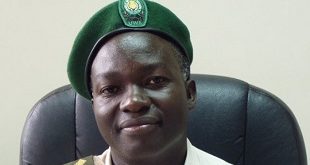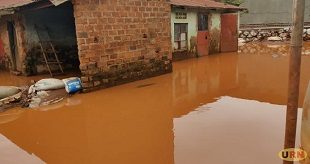
Kampala, Uganda | THE INDEPENDENT | The International Organization for Migration (IOM) and religious leaders have agreed to jointly educate Ugandans about safe migration. This decision resulted from a three-day engagement on safe migration between the IOM and the Inter-Religious Council of Uganda (IRCU).
In search of better opportunities, many Ugandans have fallen prey to unsafe migration treks, leading to financial fraud, various forms of abuse, and occasional loss of life. Information from the Ministry of Gender, Labor and Social Development shows that in the last two years, at least 120,000 Ugandans have left the country for better livelihoods, especially in the Middle East.
According to IOM, many of these migrants go through unsafe migration channels such as unethical recruitment and human trafficking, primarily due to a lack of accurate information at the time of decision-making. This is the gap that the IOM-IRCU initiative aims to bridge.
Metropolitan Jeronemous Muzeeyi, the Archbishop of the Orthodox Church in Uganda and co-chairperson of the IRCU council of presidents, expressed gratitude for involving religious leaders in combating this social vice. He pledged, on behalf of the council, to fulfill their responsibility in the partnership, noting that this move aligns with religion’s cardinal roles.
The Archbishop further stated that with enhanced facilitation, religious leaders would be in a better position to address the root causes of intended migration, influence actions along the entire migration chain, and support policy formulation. “We now have the information, skills, and tools to adequately support the social and psychosocial reintegration of our fellow Ugandans on the move,” he stated.
He raised concerns about politicians and media who foster hostility, which demeans and dehumanizes affected persons, and criticized continued attack on asylum seekers’ rights, especially in the global north, quoting the Bible thus, “Do not neglect to show hospitality to strangers, because by so doing, some have unknowingly entertained angels.”
Archbishop Muzeeyi also committed to using their voices to speak against unsafe migration, especially unethical recruitment, and urged that the program be extended to the sub-national level.
Sheikh Mohammed Ali Waiswa, the deputy grand mufti of Uganda and a member of the IRCU board of directors, revealed that 16 resolutions were passed at the workshop to support the initiative. These resolutions focused on mainstreaming information flow and fostering dialogue among all stakeholders.
The deputy grand mufti stated that the resolutions were agreed upon after thorough analysis of the entire migration value chain, recognizing the sector’s advantages. He added that to ensure continuity, IRCU is committed to using its youth interfaith network and women of faith, among other faith-based structures, to popularize the initiative and its operations.
Sanusi Tejan Savage, the IOM Uganda chief of mission, noted that despite IOM’s efforts to sensitize young people against irregular migration, the vice has persisted. Therefore, new techniques to tackle the problem had to be devised, and this initiative is one of many.
According to Savage, religious leaders are instrumental in helping young people avoid taking careless risks that could turn dreams into disasters. He emphasized that these leaders only need to replicate their previous efforts in the fight against HIV/AIDS.
Estimates show that religious leaders communicate with over 20 million people over the weekend through various denominational congregations, and IOM believes this strength can be leveraged to amplify the safe migration message.
“Many Ugandans trust their religious leaders and take their advice on various matters. So we thought if we equip these leaders, they would rightly advise would-be migrants within their congregations. Remember, this information is only useful before the decision is made, which is why we have engaged IRCU to incorporate it into its operations,” says Victoria Nabiteeko, IOM national program officer for labor migration and social inclusion.
*****
URN
 The Independent Uganda: You get the Truth we Pay the Price
The Independent Uganda: You get the Truth we Pay the Price



